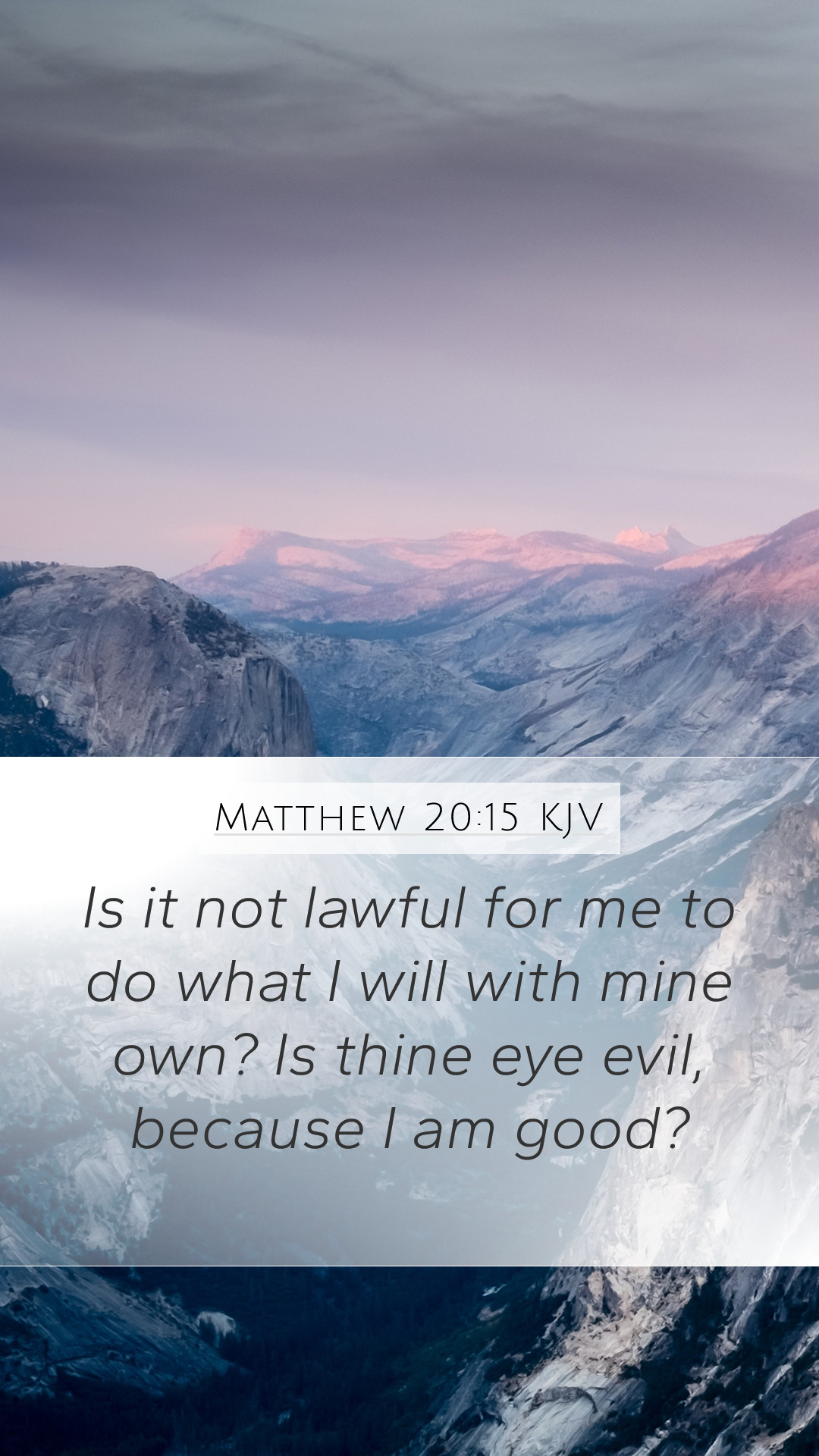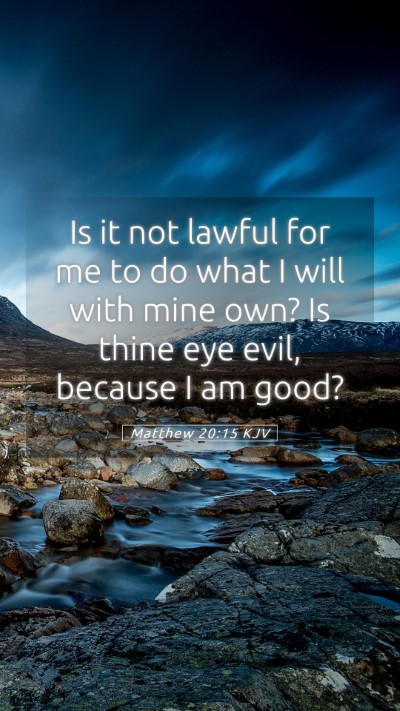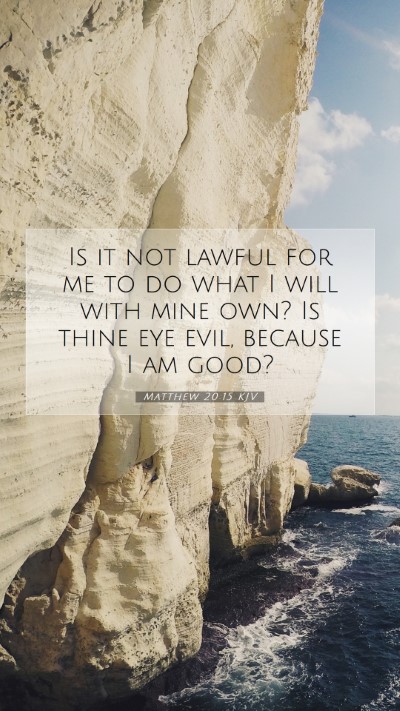Bible Verse Explanation: Matthew 20:15
The verse Matthew 20:15 states:
"Is it not lawful for me to do what I will with mine own? Is thine eye evil because I am good?"
This passage is part of Jesus' parable of the laborers in the vineyard, which addresses themes of grace, equality, and divine sovereignty. Below is an analysis combining insights from various public domain commentaries.
Understanding Scripture: Key Themes
- Divine Sovereignty: This verse highlights God's right to dispense His goodness as He sees fit. Matthew Henry interprets this as an affirmation of God's authority over His own grace and mercy.
- Human Perspective: The phrase “Is thine eye evil” indicates a human tendency to judge unfairly based on our limited perspective. Albert Barnes notes that this reflects jealousy or disdain for God's goodness toward others.
- Grace and Fairness: The parable drives home the difference between human conceptions of fairness and God’s grace. Adam Clarke emphasizes that God's generosity might conflict with our sense of justice, which often leads to resentment.
In-Depth Bible Verse Analysis
In this verse, Jesus defends His actions against murmurs of unfairness regarding the payment of the laborers. Reflecting on this within the broader context of the passage, we see:
- The Last Shall Be First: Prior verses (Matthew 20:16) echo the theme that God’s kingdom operates on divine principles rather than human expectations.
- Parable of Grace: The vineyard symbolizes God's kingdom, where grace is freely given, regardless of when one comes to faith.
Application of Matthew 20:15 to Daily Life
Understanding this verse promotes several applications:
- Embracing Grace: We are encouraged to accept God’s grace without envy towards others who receive it. This can foster a spirit of gratitude rather than resentment.
- Reassessing Fairness: This invites deep reflection on how we view fairness in our own lives and highlights the importance of adopting an attitude of humility and thankfulness.
- Focus on God’s Goodness: Instead of focusing on what we perceive is 'fair', we are called to admire the abundance of God’s goodness toward us all.
Cross References
This verse ties closely to several other scriptures that discuss themes of grace and God's sovereignty:
- Matthew 19:30: "But many who are first will be last, and the last first."
- Luke 15:29-30: The elder brother's complaint in the parable of the prodigal son echoes the sentiments in Matthew 20:15.
- Romans 9:15-16: "For He says to Moses, 'I will have mercy on whomever I will have mercy...'" emphasizes God's discretionary grace.
Conclusion: Biblical Exegesis of Matthew 20:15
Matthew 20:15 serves as a profound reminder of the nature of God’s grace and the challenge it poses to our understanding of fairness and justice. By studying this verse, Christians can deepen their Bible verse understanding and enrich their faith with the insights it provides into the character of God.
This analysis contributes to a broader framework of Bible study insights that can reinforce discussions in bible study groups or enhance online Bible study practices. Such insights are essential for anyone looking to deepen their understanding of Scripture or seeking bible study tools and bible study materials.


